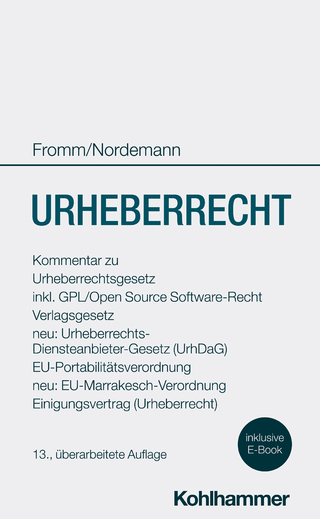
Rethinking Patent Law
Seiten
2012
Harvard University Press (Verlag)
978-0-674-06468-3 (ISBN)
Harvard University Press (Verlag)
978-0-674-06468-3 (ISBN)
Scientific and technological innovations are forcing the inadequacies of patent law into the spotlight. Robin Feldman explains why patents are causing so much trouble. She urges lawmakers to focus on crafting rules that anticipate future bargaining, not on the impossible task of assigning precise boundaries to rights when an invention is new.
Scientific and technological innovations are forcing patent law into the spotlight and revealing its many glaring inadequacies. Take, for example, the patent case that almost shut down the BlackBerry, or the growing phenomenon of patent trolling, in which patents are acquired for the sole purpose of entrapping companies whose products relate to them. And patents on genes have everyone up in arms—and our courts confused.
Robin Feldman explains why patents are causing so much trouble. The problem lies in our assumption that patents set clear boundaries for rights to an invention. In reality, they do no such thing. The very nature of inventions makes them impossible to describe unambiguously for all time. When something is so new that we do not understand yet how it works, what it is capable of doing, or how it could be applied—as is often the case in biotechnology—description is necessarily slippery.
Instead of hoping for clear boundaries, and moaning when we don’t get them, Rethinking Patent Law urges lawmakers to focus on what the law can do well: craft rules that anticipate the bargaining that will occur as rights unfold. By steering clear of laws that distort the bargaining process, lawmakers can help courts answer difficult questions, such as whether genes, software, and business methods constitute patentable subject matter, whether patents in the life sciences should control inventions that have yet to be discovered, and how to resolve the battles between pharmaceutical companies and generics.
Scientific and technological innovations are forcing patent law into the spotlight and revealing its many glaring inadequacies. Take, for example, the patent case that almost shut down the BlackBerry, or the growing phenomenon of patent trolling, in which patents are acquired for the sole purpose of entrapping companies whose products relate to them. And patents on genes have everyone up in arms—and our courts confused.
Robin Feldman explains why patents are causing so much trouble. The problem lies in our assumption that patents set clear boundaries for rights to an invention. In reality, they do no such thing. The very nature of inventions makes them impossible to describe unambiguously for all time. When something is so new that we do not understand yet how it works, what it is capable of doing, or how it could be applied—as is often the case in biotechnology—description is necessarily slippery.
Instead of hoping for clear boundaries, and moaning when we don’t get them, Rethinking Patent Law urges lawmakers to focus on what the law can do well: craft rules that anticipate the bargaining that will occur as rights unfold. By steering clear of laws that distort the bargaining process, lawmakers can help courts answer difficult questions, such as whether genes, software, and business methods constitute patentable subject matter, whether patents in the life sciences should control inventions that have yet to be discovered, and how to resolve the battles between pharmaceutical companies and generics.
Robin Feldman is Professor of Law at the University of California, Hastings College of the Law.
| Erscheint lt. Verlag | 19.7.2012 |
|---|---|
| Zusatzinfo | 3 line illustrations, 1 chart |
| Verlagsort | Cambridge, Mass |
| Sprache | englisch |
| Maße | 156 x 235 mm |
| Themenwelt | Sonstiges ► Geschenkbücher |
| Recht / Steuern ► Allgemeines / Lexika | |
| Recht / Steuern ► EU / Internationales Recht | |
| Recht / Steuern ► Wirtschaftsrecht ► Urheberrecht | |
| ISBN-10 | 0-674-06468-2 / 0674064682 |
| ISBN-13 | 978-0-674-06468-3 / 9780674064683 |
| Zustand | Neuware |
| Haben Sie eine Frage zum Produkt? |
Mehr entdecken
aus dem Bereich
aus dem Bereich
Textausgabe zum deutschen, europäischen und internationalen Patent-, …
Buch | Softcover (2023)
dtv Verlagsgesellschaft
17,90 €
Kommentar zu Urheberrechtsgesetz, Verlagsgesetz, Neu: …
Buch | Hardcover (2024)
Kohlhammer (Verlag)
349,00 €


